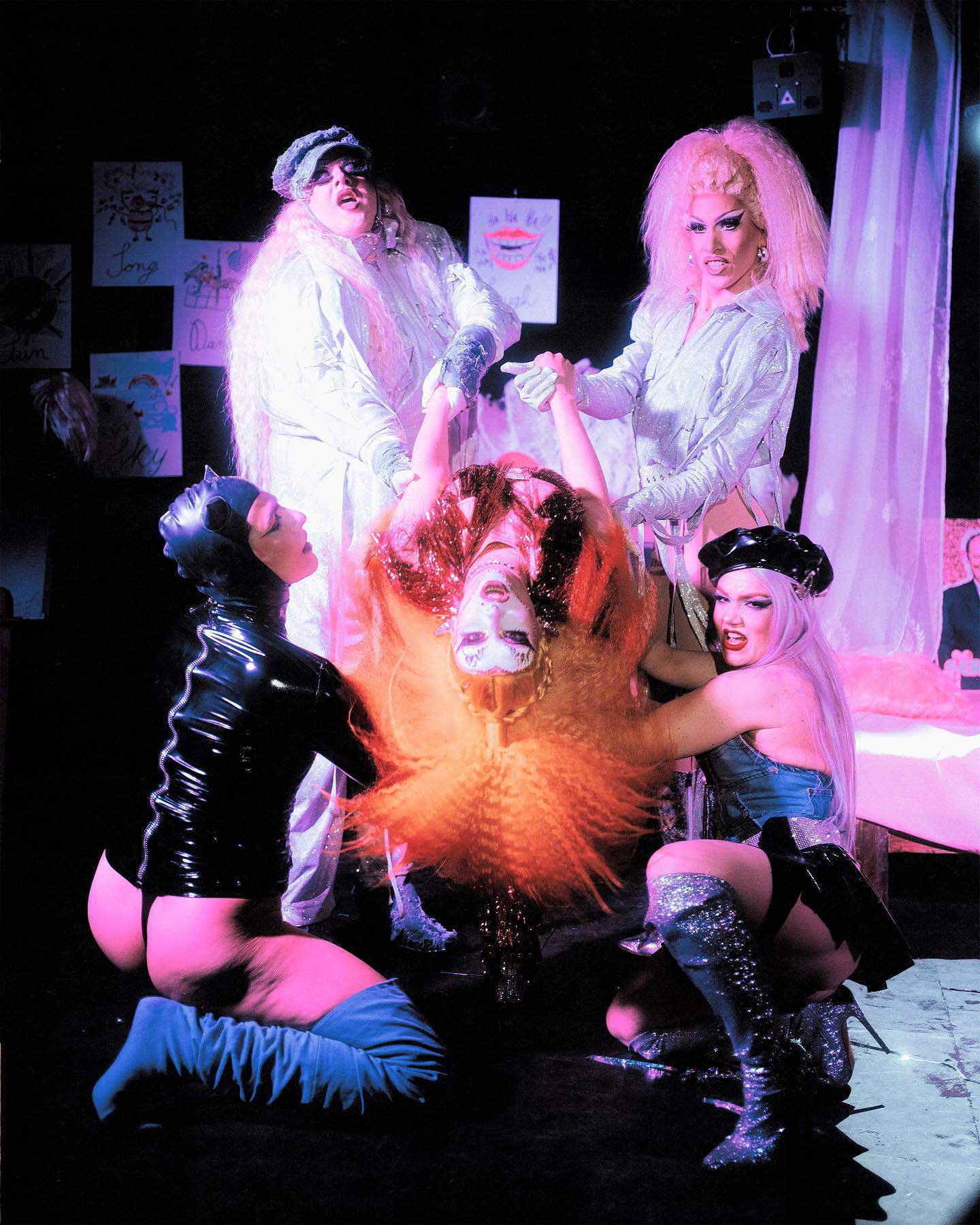A club culture autopsy
Bodies colliding, sweat slicking skin, and suddenly the night isn’t a place, it’s a fever, a ritual, a refusal to be still. Once, the dancefloor was a secret. You went to scream, to kiss strangers in the fog, to vanish. Now? It’s more about what you can see than what you can be.
Even if today the night life still has its moments of magic, it is nothing like it used to be. Usually, the only constant is the location: from the ex strip club in Naples, Club21, to the giant warehouse the once hosted the Haçienda in Manchester, not to mention all the biggest London clubs, where some of the greatest artists of all time used to perform, or even “dance the night away.”
The Haçienda Club, Manchester
And yet it wasn’t just about dancing. Clubbing, once a subculture born in darkness and defiance, has become a content machine, a place where the strobe is a spotlight and the body is a brand. Clubs were living, breathing scenes, and the crowd was a co-creator of the night with its incredible outfits, dancing moves, and spirit. The club wasn’t a place to lose yourself, it was where you found your people. Those clubs are where the nightlife became a language or, better to say, a way of life.
Nowadays, you get the sense that nightlife is less about community and more about consumption. In the glare of phones flashes and sponsored backdrops, clubbing has become documentation. Back then, it was about feeling the moment and not freezing it in pixels: no one cared about picturing the drop or finding the perfect light. You were in it, not above it. But now everyone is dancing for the lens. The night isn’t something you experience, but it’s something you curate, accurately, for your next Instagram post. People don’t just go out, they broadcast it, sclupt it, post it. There’s this urgency to exist, but only online, and this has eclipsed the freedom of being present. The music still bangs, but half the crowd’s got one ear tuned to their stories.
The underground has been eroded by gentrification, licensing laws, and the algorithm. Clubs that once operated on sweat, sex, and subversion now feel like high-end gyms for extroverts: same sound systems, better lighting, fewer vibes. Clubs like Trade, G-A-Y, Imperial Club, Metalheadz and Club21, those weren’t just venues, they were political, cultural, erotic battlegrounds. Now the margins have been flattened, and everything feels brand-safe. Belonging is still sold but now it comes with a hashtag and a filter.
But no two cities capture the beautiful chaos of nightlife quite like London and Naples: different in tempo, identical in urgency. They move at different speeds but crash into the same night.
London is the ultimate identity machine. The city sprawls with options, from the hard techno infernos at The Cause or Fold, to the hedonistic chaos of Adonis, ending up at Dalston Superstore for a queer karaoke night or disappear into a Brixton warehouse you found via a Telegram link and a password. It’s not just nightlife, it’s nightlife with an existential twist: each night asks: who do you wanna be tonight? There’s freedom, absolutely, but it’s laced with pressure too, a need to be seen, to be relevant, to keep up with the endless churn. Drugs? Still there. Maybe subtler than in the past, but still a quiet undercurrent, a way to enhance the blur. The real addiction, though, might be the performance itself.
And then Naples, smaller, warmer but louder. A city that vibrates constantly, even before the bass kicks in. Here, the options aren’t as many, but the contrasts are sharper. You could be at a glam rooftop club on the lungomare, downing overpriced drinks to the sound of Bad Bunny, or in the thick of Basic Club, a rave space hidden in an industrial corner of the city that feels more Berlin than Vesuvio. There’s the newly resurrected Club21, once a strip club, now a glossy, posh spot. It’s fun, packed, and always buzzing, but the vibe leans commercial, with chart-topping tracks and curated chaos. Galleria19 bring techno and experimental sounds to the scene, but it’s not about the genre, it’s about the people. There’s a sense of intimacy here, even in the big venues. Then there’s Club Venus, but it’s not a fixed club, ‘just’ a wild, roving night that pops up across Naples. It’s loud, unapologetically queer, packed with drag, glitter, and bodies moving like nobody’s watching. Naples clubbing scene it’s not networking, it’s kinship. Here, the energy is homegrown, pulled from the crowd itself rather than external highs.
Drag Queens at Club VENUS, Naples
London and Naples still burn bright when the sun goes down, each in their own way. The raw, unfiltered chaos of the past may have given way to something glossier, more self-aware, but that doesn’t mean the spirit is gone. It’s just evolved. In between the phones, the glitters and the meticulously styled outfits, you still find moments that feel sacred: a shared glance in the strobe light, a drag queen commanding the room, a bass-line that pulls strangers into sync. The night might not be what it once was, but in the right corner of the city, with the right crowd, it can still feel like everything.



